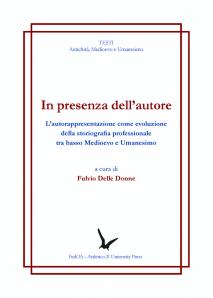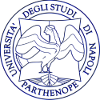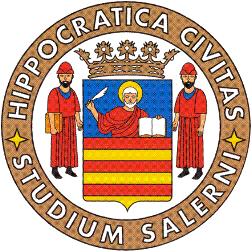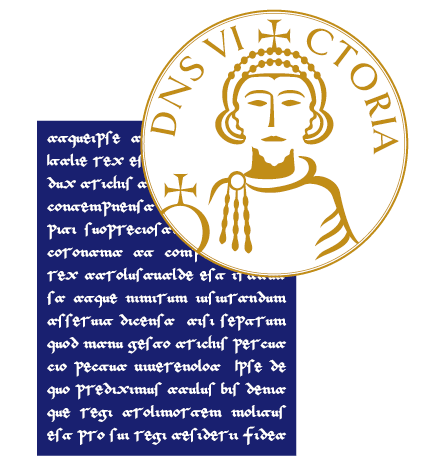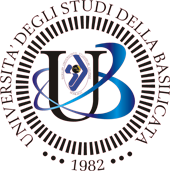In the Presence of the Author: Self-representation and the Evolution of Professional History-writing from the late Middle Ages to Humanism
Keywords:
Medieval historiography, Medieval chronicles, Authorship, Gaufridus Malaterra, Peter of Eboli, Galvanus Flamma, Franciscus Pipinus, Thomas de Chaula, Blondus Flavius, Antonius BonfiniSynopsis
Publishers: FedOA - Federico II University Press
Series: Texts. Antiquity, Middle Ages and Humanism
Pages: 170.
Language: Italian
NBN: http://nbn.depositolegale.it/urn:nbn:it:unina-24018
Abstract: This volume investigates how historiography became a “profession” from the 13th to the 15th century. As a genre, historiography is difficult to define: inspired by Cicero’s rhetorical rules, humanists were the first to elaborate a specific ars. In doing so, they adapted rhetoric to a new ethical sense of humanitas. Several contributors to this book have already discussed in previous works of theirs the linguistic and rhetorical choices that some important historians made. See, for instance, Tra storiografia e retorica: prospettive nel basso medioevo italiano, ed. M. Zabbia, in «Reti Medievali. Rivista», 19 (2018), the papers by Paolo Garbini, Marino Zabbia, and Fulvio Delle Donne. On this occasion, they pay attention to the authors’ direct interventions: their self-representation and reflections on methodological issues reveal a new consciousness, which gradually developed over the centuries.
This volume is a part of the PRIN project (the acronym standing for Project of Relevant National Interest) titled “A.L.I.M. (Digital Archive of the Italian Latinity in the Middle Ages): Practices and theory for computer archiving and philology applied to medieval texts”, which Professor Fulvio Delle Donne coordinates at the University of Basilicata.
Summary:
Fulvio Delle Donne, Introduction. Historiographical authorship and professionalization
Paolo Garbini, History and style in Goffredo Malaterra
Angela Brescia, In his own hand: autograph annotations in the De rebus Siculis carmen by Petrus de Ebulo
Marino Zabbia, Galvano Fiamma and the essence of historiography
Sara Crea, The figure of the Actor and Francesco Pipino’s work method: the clash between Frederick I and the Italian cities
Mariarosa Libonati, The historiographer and the orator: Chaula’s allocutio to Alfonso the Magnanimous
Fulvio Delle Donne, The awareness of primacy. Blondus Flavius and his new idea of history
Martina Pavoni, «Scribere sum iussus historiam». Antonio Bonfini, historiographer of the kings of Hungary
Downloads
